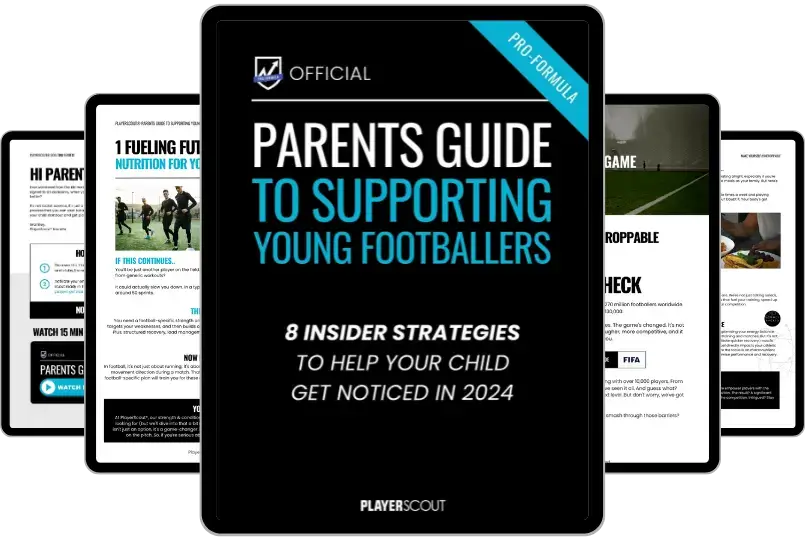Are you interest in finding out more about elite football academies?
Below are some of the most frequently asked academy related questions.
If you have any further questions jot them in the comments below.
What is a Football Academy?
A football academy is a facility set up to develop young footballers.
It’s most often thought of as a training school to teach young players how to play football, to meet the club’s specific standard.
Most elite level football clubs in Europe and Latin America has an academy to produce players to:
- Develop into first team players
- Become a reserve or squad players
- Make money for the club from a potential transfer (or through the EPPP compensation scheme).
The youth development system in America is different to other major footballing nations, with players joining pro clubs after graduating from the various collegiate sports program.
As youth development is so important, clubs ensure that when a player reaches under 9’s, they must play only for their academy.
These academies sign several young players hoping to find a future star. Previously, clubs were restricted to locally based players, however as more money is pumped into the game, the larger clubs now have the freedom to recruit nationwide (and sometimes internationally).
The number of academy players moving abroad has become so popular that companies like La Liga Brokerage form in 2016 to cater to the demand.
Check out Football Daily’s Run down of Some of the Worlds Best Football Academies
Does My Location Dictate Where Who I Can Play For?
Originally the football association had strict regulations in order to prevent the game of football become monopolized. The regulations stated that football clubs were unable to sign youth players who lived outside their catchment area.- Under 12’s must live within an hour’s travelling distance from the football club
- Children aged 13-16yrs must live within 90 minutes travelling distance from the football club
What Happens Once a Child Is Signed to an Academy?
Players age 9-16 will sign a schoolboy contract which is renewed every 1-2 years, depending on the player’s progress and abilities. As the player turns 16, the academy will decide whether to offer the player a place on their Youth Training Scheme. This is when a player is offered a scholarship contract. Allowing the player to combine professional football training with studies, in an environment built to help them progress within the game. Scholors often receive wages from the club as well accommodation. This is known as the professional development phase, where player progression is monitored over 3 years and successful players offered a professional contract. Very few players progress directly through to the first team, and either plays competitive football in the under 23’s squad or go out on loan to a lower league club.
How Much Training Do Football Academy Students Endure?
Each football academies training will vary in time, intensity and philosophy. But a general football academy training syllabus will involve the following:- Football Academy Players train 2 times during the mid week, learning skills and techniques
- On the weekend (normally a Sunday), Football Academy Players will play a football match against another academy team
- Up to 28 football matches in any 1 season
- Under-9s, 10s and 11s, matches are eight-a-side
- Under 11-16’s matches are regular 11-a-side matches
- Academy players are given all-round assistance from the clubs staff
- Players are given practical homework. For example training drills that can be practised outside of academy training hours
- Parents are given training on nutrition and mental preparation
- Players are trained specifically on agility
- Clubs communicate directly with the players schools sports departments to request that students also participate in other sports to work other muscles
How Do Football Academies Develop Players?
Football academies develop players by providing professional training, facilities and experts committed to the individual’s development. From day one you learn the basic competencies required of a professional football player. Concentration on:- Development of individual technique
- Football skills based on the ajax system
- Strategies tactics and technique
- Specialist training methods for outfield players
- Specialist training for goalkeepers
What Does a Football Scholarship Consist Of?
At 16 years old, the football club meet with the player and parents to make a decision on the players future. If a scholarship contract is offered, then the player will re-locate nearer the football club, but as part of the contract will be expected to:- Contimue with school education at the nearest local college registering for courses such as A-levels, BTecs or GNVQs.
- Carry out jobs at the main club such as collecting up kit for the first teams and taking it to the launderette














